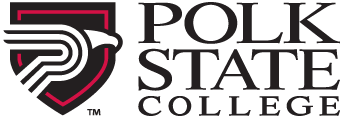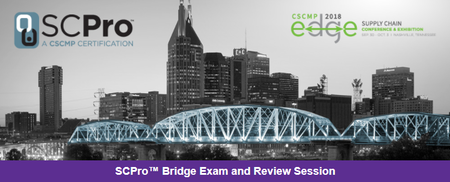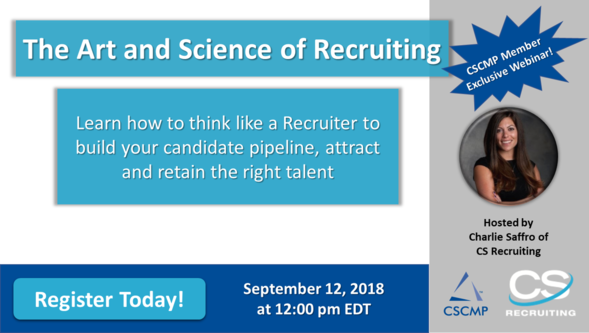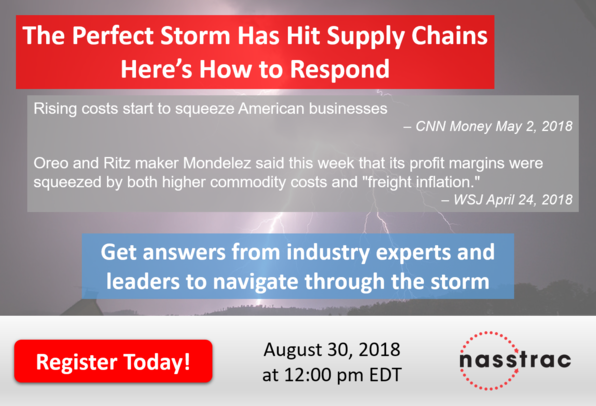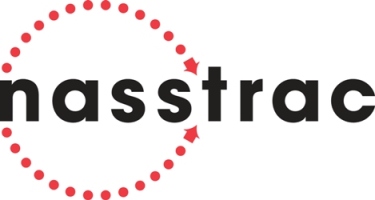 |
||||||||||||||||||
| Archive | Subscribe | Printer Friendly | Send to a Friend | cscmp.org | ||||||||||||||||||
|
Current News
The economy is booming and domestic consumption and manufacturing have increased. This is the recipe for demand quickly oustripping supply at sustainable prices. For shippers, it’s challenging to meet both their budget objectives and the complex needs of their supply chain at the same time. In a JOC.com from May 2018, Alan Beaulieu, president of ITR Economics, said the problem is likely to worsen: "The increase in rates is only going to get stronger. Prices tend to move up quickly and be sticky on the way down." In this issue, we’ll explore how we make these carriers and drivers more efficient, to free up more capacity by reducing empty trucks, reducing cancelled loads, and by improving appointment scheduling at facilities. About the author: Dan Lewis is the co-founder and CEO of Convoy. Before Convoy, Dan ran product development at Amazon, Microsoft and Wavii (acquired by Google). Dan started his career in technology and supply-chain consulting for Oliver Wyman, after studying cognitive science at Yale University.
CSCMP is excited to offer Nashville-area facility tours to enhance your conference experience!
Tours have limited seating and are available on a first-come, first-served basis. Advance purchase is available, but you must be a fully-paid EDGE conference registrant. Gibson Guitar Custom Shop Monday, 10/1 & Tuesday, 10/2 11:15 a.m. - 12:30 p.m. Tour capacity: 11 The most desirable and iconic guitars in the world are made at the Gibson Custom Shop in Nashville! This tour will cover the manufacturing process from raw wood to stage-ready instruments. The impressive craftsmanship, historic machinery and indelible stories within, will give guests a sense of beauty being created and its relationship to the music we love. Gibson Custom Shop has made guitars for Eric Clapton, Jimmy Page, Slash, BB King, Joe Perry, Angus Young and Peter Frampton, to name a few. Requirements: Closed toe shoes only; no high heels. Safety glasses will be provided for those who do not have eyewear. Nashville Bun Company Tuesday, 10/2 2:15 p.m. - 3:15 p.m. Tour capacity: 19 During this tour, you will see the manufacturing process of English muffins and biscuits. Production lines will be observed from raw material to finished production. All manufacturing procedures will be covered. Requirements: Must have closed-toe shoes. No jewelry allowed on the floor. Hairnets, smocks, and ear plugs will be provided.
The CSCMP Nashville roundtable joined Hippie Radio for a live segment on 8/7/18. During the show they discussed the supply chain industry as a whole, as well as focusing on the rapidly-growing supply chain footprint in Nashville, TN. They also discussed the upcoming EDGE Conference which is being hosted at the Gaylord Opryland this year Sept. 30-Oct. 3, 2018. Didn't get a chance to to tune in? Listen to the interview recording now. CSCMP will be on Hippie Radio again! Mark your calendar to tune in to Hippie Radio on 8/28/18, at 9:40 a.m. EDT and hear from CSCMP corporate members Ted Stank from the University of Tennessee and David Caines of Kenco Logistics Services LLC. CSCMP Awards and Recognition
Connect
Please join CSCMP in giving a warm welcome to the following new Corporate Members:
CSCMP Corporate Memberships allow companies to provide access, insight and perspective to their entire team. Corporate members receive all the benefits of a Professional Membership, plus special pricing and exclusive services tailored to meet your specific needs and create value for your organization. Learn more about CSCMP Corporate membership
U.S. manufacturers are not exactly coming back in droves. In fact, A.T. Kearney’s Reshoring Index shows that imports of manufactured goods from the 14 largest low-cost country trading partners in Asia grew 8 percent last year – reaching a record-high value of $55 billion and the largest one-year increase since the economic recovery of 2011. Despite strong growth in U.S. gross output of manufactured goods, imports from the 14 typical offshoring countries have grown much faster. In fact, imports have outpaced manufacturing gross output in four of the past five years and eight of the past 10 years – showing a clear direction away from reshoring. The $1.5 trillion tax cut that President Donald Trump signed into law, if anything, is likely to exacerbate this. The combination of an overstimulated economy and low unemployment will likely result in even more imports when domestic manufacturing can’t keep up with growing consumer demand. So why the reshoring struggle? We see three major reasons:
The Reshoring Index has placed A.T. Kearney at the center of the reshoring debate – often presenting a perspective that is contrary to the mainstream chorus. However, the Index has become a powerful resource because it is grounded in actual trade data and macroeconomic metrics, not speculations or opinions. For more information, read the full report here: Reshoring in Reverse Again
About the author:
Training and Development
NEW! This year at EDGE 2018, CSCMP will be hosting the first ever review session and live examination for the SCPro™ Certification Bridge Exam. The SCPro™ Bridge Exam leverages the knowledge and credentials already earned by supply chain professionals by recognizing credentials like other supply chain certifications and advanced degrees. About the review session: On Sunday, Sep. 30, from 2:00-5:00 p.m. CT, Dr. Brian Gibson of Auburn University will host a review session as preparation for the SCPro™ Bridge Examination. Professor Gibson will lead participants through a review of the information covered on the exam and answer questions about the exam. About the SCPro™Bridge Exam: The SCPro™ Bridge Exam is an abbreviated version of the SCPro™ Level One Exam. It is based on the eight learning blocks of the end-to-end supply chain as defined by CSCMP. Individuals who achieve a passing score on the SCPro™ Bridge Exam will be designated as SCPro™ Level One Certified.
That's right! We're already in the planning stages for 2019 EDGE at the Anaheim Convention Center in Anaheim, CA, Sept. 15-18, 2019.
The EDGE Committee is seeking 12 Track Chairs for the 2019 EDGE conference. We're looking for volunteers who have a strong supply chain knowledge and the ability to command a room with energy and focus! Track Chairs are expected to build up to six sessions for the assigned track. If selected, your role will begin at 2018 EDGE in Nashville, TN at the Track Chair Kick-Off, on Sept. 30, 2018. Edge Conference
In today's job market, acquiring and retaining skilled and qualified talent has never been more difficult, and it is expected to continue to grow more difficult as demand increases. With the U.S. National Unemployment rate at historic lows, 3.9 percent in April 2018, the demand has never been higher than it is now. The Council of Supply Chain Management Professionals (CSCMP) will be hosting a CSCMP member exclusive webinar that will provide our members with insights, tips, and tricks for recruiting great supply chain talent. Charlie Saffro of CS Recruiting will discuss acquisition strategies and tactical execution along with common issues for employee turnover and how to increase retention with valuable staff. She will also touch on today's market and what candidates are looking for in their next role in the logistics, transportation and supply chain industry Reserve your spot today with the link below, even if you're not able to attend, register and we'll send you a replay after the webinar. Recently, CEOs have been forced to address margin compression in their earnings calls and forecasts due to increasing transportation costs. With powerful market factors converging to negatively impact transportation costs, capacity, and the bottom line, shippers can apply effective strategies to weather the storm and begin to build a world-class, integrated transportation system. Thousands have benefited from our first two Perfect Storm webinars, so be sure to join us on Thursday, Aug. 30, 2018 at noon EDT for a free webinar as NASSTRAC brings you the third installment in the Perfect Storm webinar series. Mike Regan, Co-Founder and Chief Relationship Officer of TranzAct Technologies and NASSTRAC’s Advocacy Chair will lead an outstanding panel of industry executives and visionaries to provide their insights into what’s going on and how shippers can best respond to this new normal in transportation. Upcoming Supply Chain Quarterly Webinar: Building Tomorrow's Supply Chain Today, Sponsored by Oracle
The supply chain has fundamentally changed over the past 10 years from the 'Amazon Effect' - omni-channel fulfillment, outsourced manufacturing and distribution. In the meantime, technology continues to race forward with IoT, Blockchain, AI, Industry 4.0 and the Digital Supply Chain. As if that isn’t enough, the deployment of this technology has gone through a fundamental shift in moving to the cloud as well. How do you keep up? What is really going on? During this webinar, Eric Domski, a VP of NA Supply Chain for Oracle with more than 25 years in Supply Chain, will offer a point of view on what the new imperatives are in driving to tomorrow’s supply chain, today. Key takeaways:
Oct. 2, 2018 - 10:30 a.m. to 11:45 a.m. Join the Fireside Chat with Art Mesher at CSCMP EDGE. Art will revisit his "3Vs Framework" to explore companies who will "thrive or die" as the exponential rate of change will have such velocity that the extinction threat of their processes and systems will be real. Phil Ruotolo will join Art in sharing P&G’s relevant initiatives and thoughts in this space. As preparation for Art Mesher's session at EDGE, review his article originally published in January of 2014 where he talked about what he anticipated when the 4P’s of marketing collide with the 3V’s of supply chain. This article is a primer for the Fireside Chat as the session will explore using the "3Vs Framework" to address how supply chain management can impact corporate performance, how IT will be used to enable and optimize supply chain performance, how the markets for systems and logistics services will evolve, and how users can best implement process improvement and technological initiatives to improve supply chain performance. Oct. 1, 2018 - 3:45 p.m. to 4:30 p.m. For those of us who have been around for awhile and have seen a lot of change in our industry, nothing in the past seems to compare with the velocity of changes that we are seeing in today’s environment. Artificial Intelligence, predictive analytics, autonomous vehicles may seem a bit futuristic but realistically, they are right around the corner. As a supply chain professional, you may scratch your head and wonder "where is this all going?" and, more importantly, "how do I plan for these disruptions"? Roundtables
Join the Nashville CSCMP roundtable as they tour the latest, state of the art UPS Sortation Hub in La Vergne, TN.
Date: Aug. 23, 2018 Time: 3:30 p.m. - 5:00 p.m.
In today’s globalized economy we must recognize the potential impact that miscommunication, distance and culture is having on the uninterrupted flow of goods. Sam Yankelevitch will share example cases of how lean quality thinking and tools have been applied as countermeasures to avoid or mitigate these problematic disruptions in our supply chains.
Date: Aug. 28, 2018 Time: 8:15 a.m. - 9:15 a.m.
Supply chains are transforming, becoming more effective and efficient due to digital technologies. We evolve them by creating integrated supply chains with our value networks: customers, suppliers and partners, and exchanging data with them, thereby increasing the transparency of the entire supply chain.
Date: Oct. 17, 2018 Location: Barcelona, Spain |
||||||||||||||||||



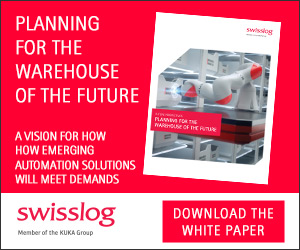
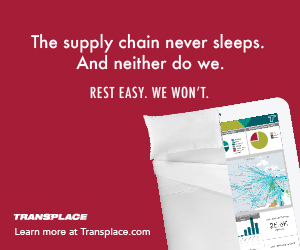
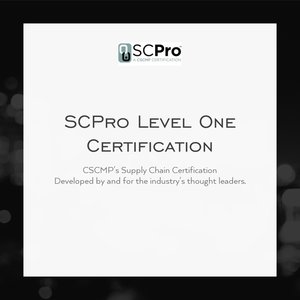
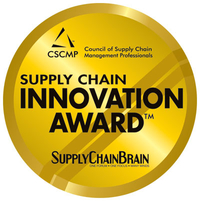

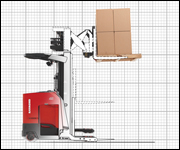

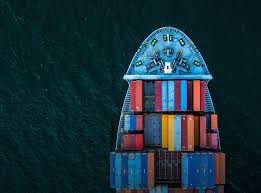 In a sharp reversal of the glimmers of hope seen just two years ago, A.T. Kearney’s latest Reshoring Index shows U.S. imports are at an all-time high.
In a sharp reversal of the glimmers of hope seen just two years ago, A.T. Kearney’s latest Reshoring Index shows U.S. imports are at an all-time high. 